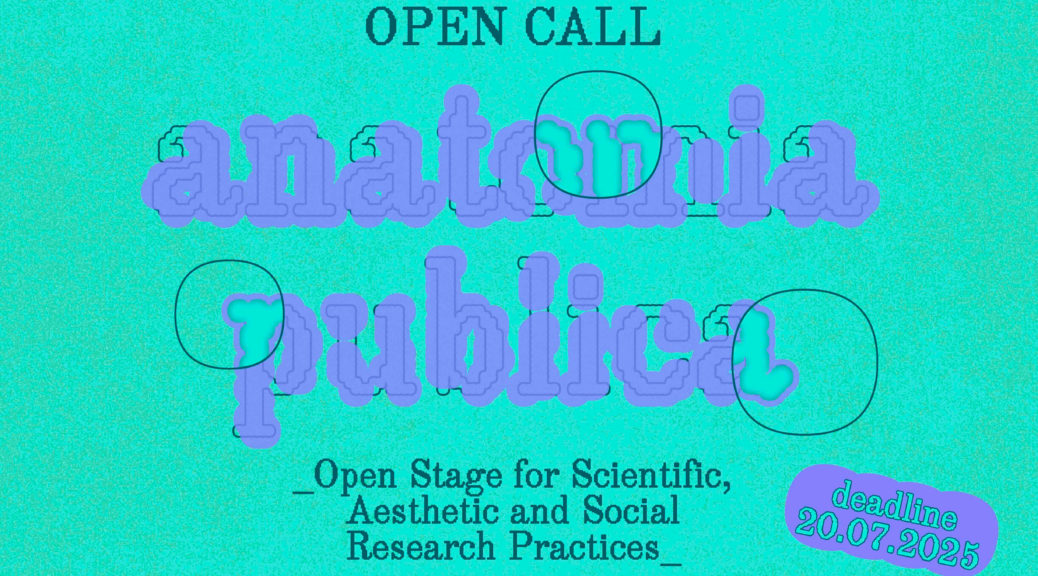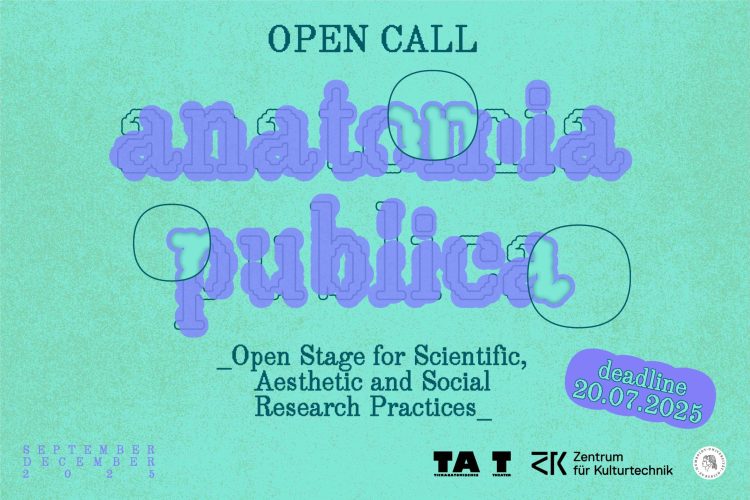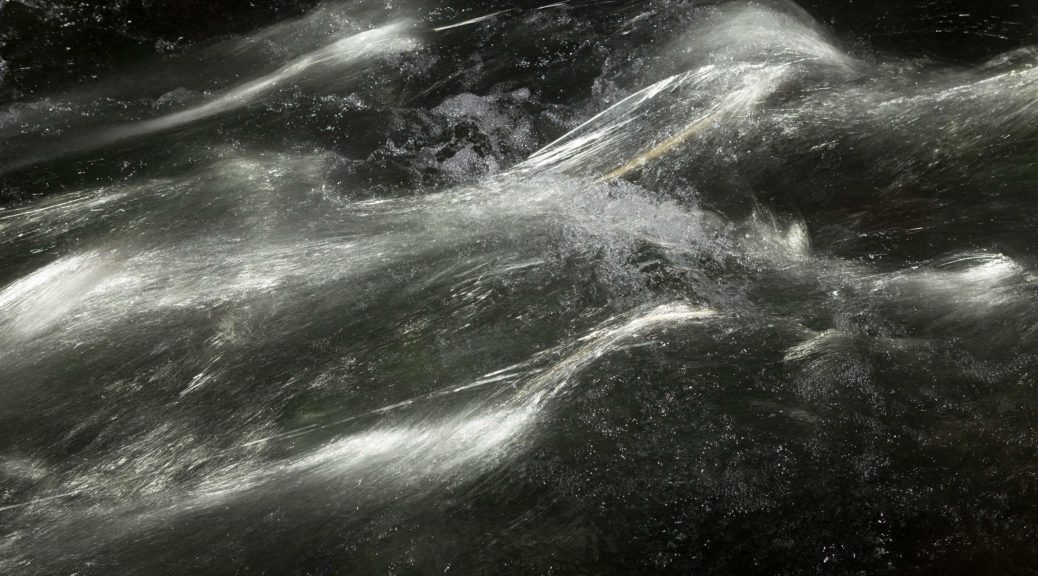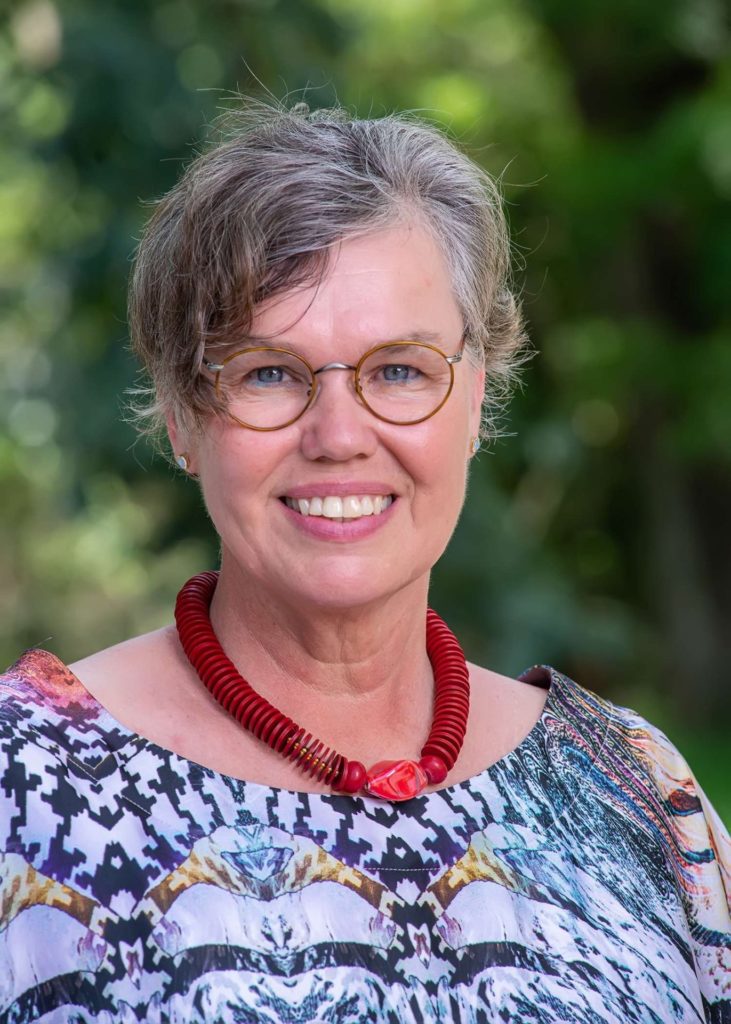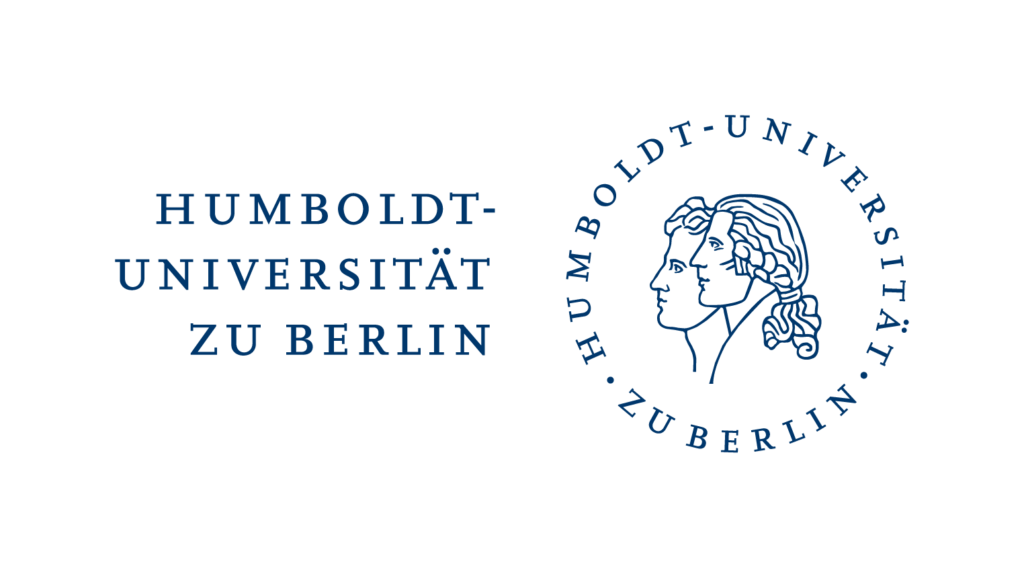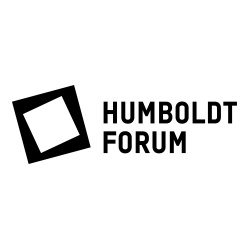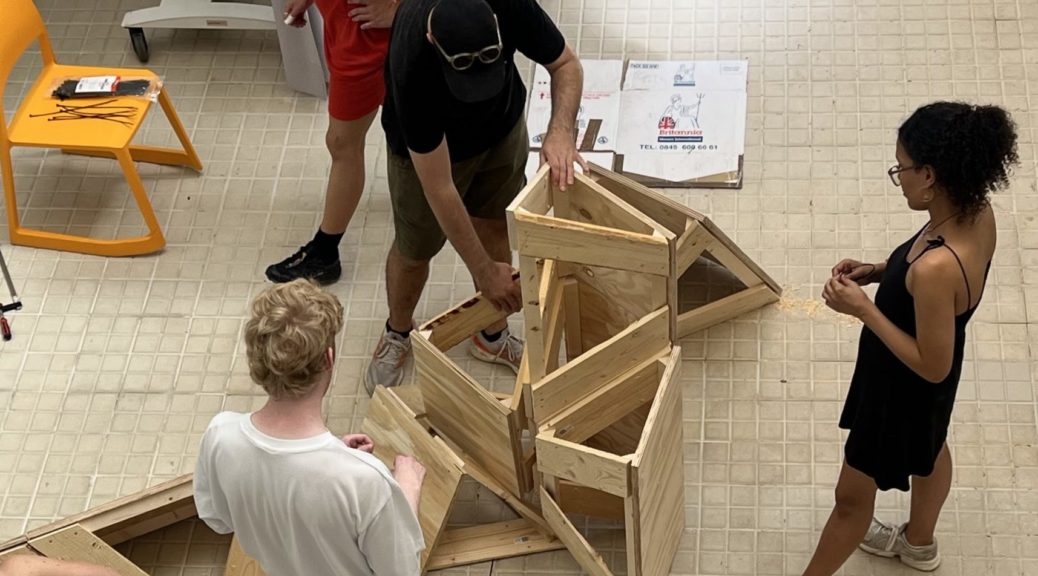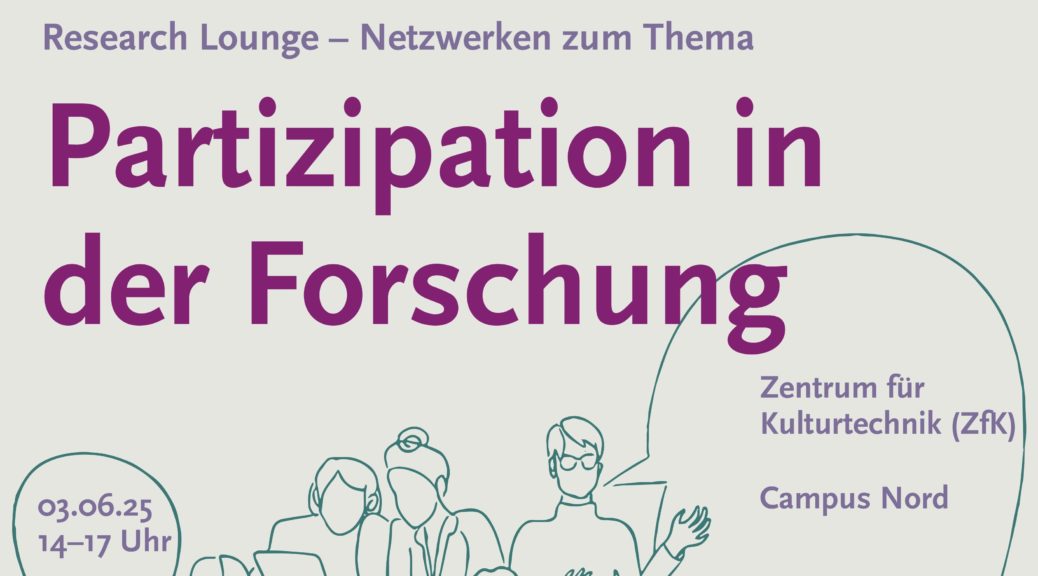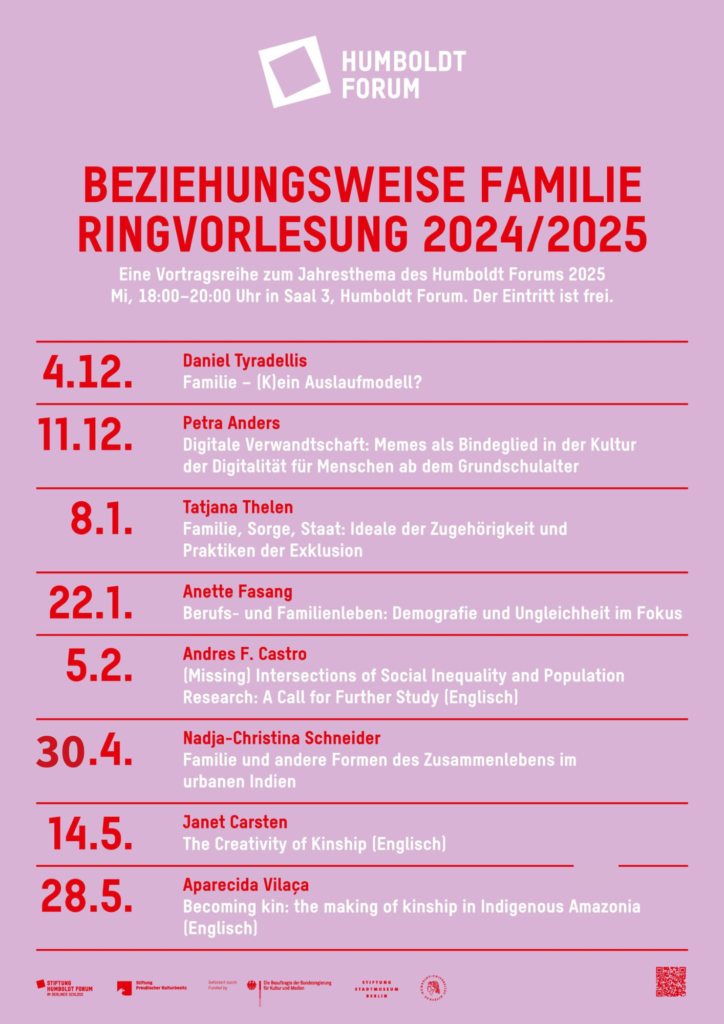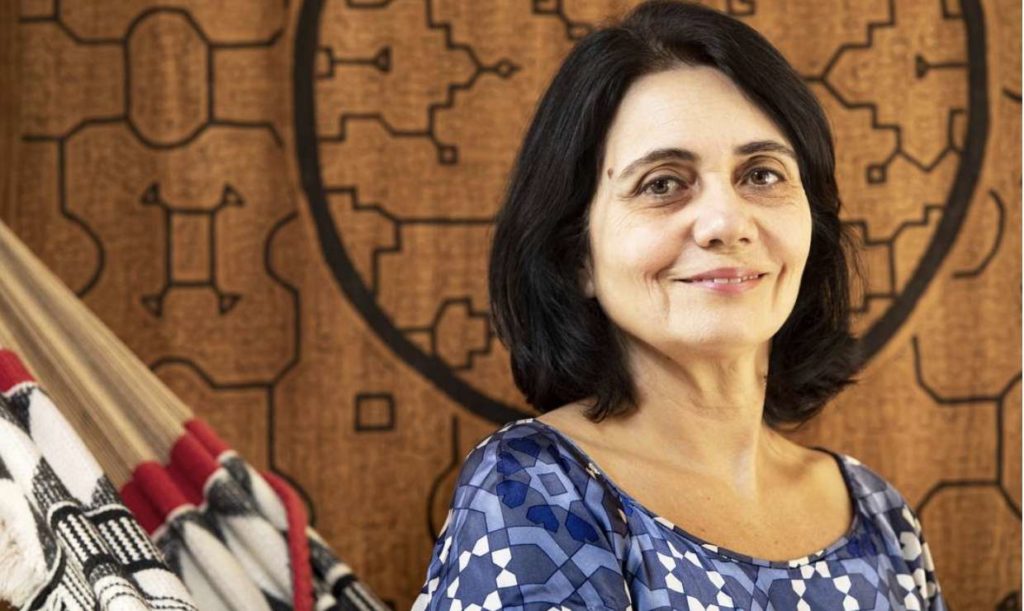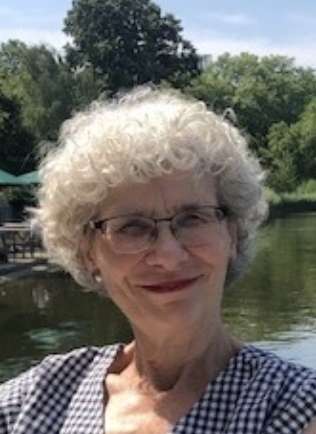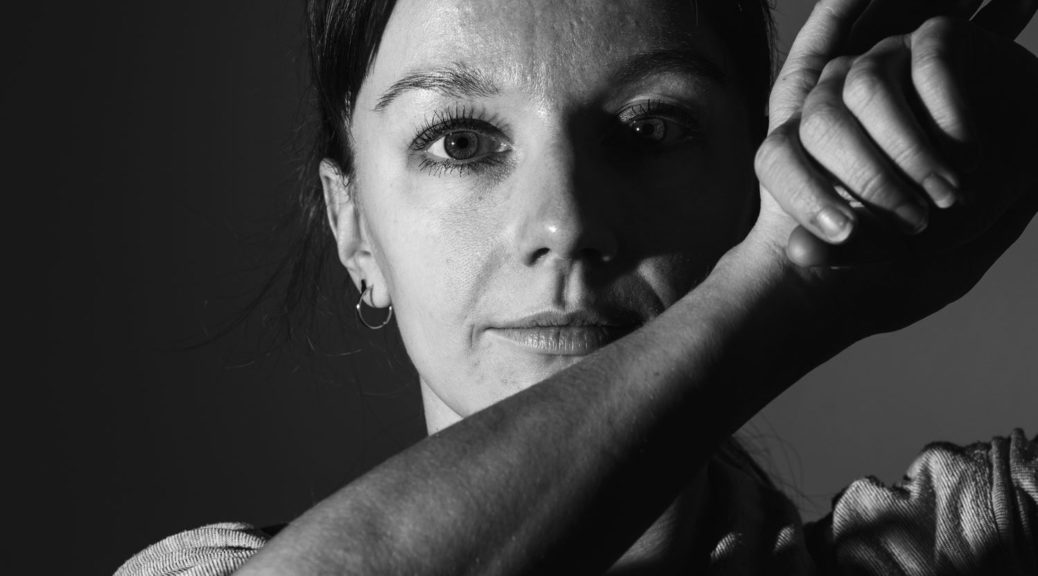Fluid Interdisciplinarities
Connecting Waters, Bridging Perspectives
Fluid Interdisciplinarities is a three-day festival which brings together researchers, artists, and practitioners to unpack water-related research and practices from October 23-25, 2025. The diverse program will feature academic sessions and public events, including film screenings, walkshops and artistic interventions to foster knowledge exchange between science, art, and society.
Fluid Interdisciplinarities will take a special focus on rivers, such as the Spree, the Maas, the Brahmaputra, the Magdalena, the Nile, the Danube, and the Panke. These rivers will not remain one-dimensional and abstracted topics, but be enlivened through rich discussions, collaborative and participatory activities. This will be the focus of House of Rivers on Saturday October 25th, which is designedwith showcasing interactive discussions and artistic projects on water session.
The event is organized by the Integrative Research Institute on Transformations of Human-Environment Systems (IRI THESys) and artist Regina Hügli (One Body of Water), in cooperation with the IHE Delft Institute for Water Education, the University of Montpellier, the Knowledge Exchange with Society team and the Tieranatomisches Theatre at the ZfK.
Stay tuned for a full program and registration information!
When: 23-25 October, 2025
Where: HU Berlin Campus Nord, Philippstraße 13/Haus 3, 10115 Berlin
Contact: Pauline Münch, pauline.muench@hu-berlin.de
Image: Lightdrawing by River Limyros, 2015, Copyright by Regina Hügli.
Lecture series “Beziehungsweise Familie” (Family Matters) – July 2nd, 2025 with Erdmute Alber
Teaching and Learning with Society: Call for Proposals
Seed-funding programm for courses that work in cooperation with society: apply by July 30, 2025.
The program “Teaching and Learning with Society: transdisciplinary courses in the Object Lab” supports teachers and students across disciplines in shaping academic questions and seminar work in cooperation with society. The aim is to integrate questions, experience and knowledge from society into teaching and university work with students, to learn from various actors in civil society, culture or politics and create an equal exchange.
The office for “Knowledge Exchange with Society” at the Center for Cultural Technique supports up to 5 seminars that work in a transdisciplinary or participatory way and include elements of exchange with society or public engagement. This may include:
- Cooperation with appropriate societal actors / organizations
- Cooperation in the organization or presentation of course content, in the form of co-teaching or using other methods that aim to incorporate expertise from outside academia
- Course design with aspects of community-based research/learning
- Cooperation with society within a seminar by students, in course projects or final theses
- Cooperation with societal groups or organizations for the presentation/display of course results
- Courses that combine material practices, object- or body-centered approaches in teaching with external collaborations
Support is provided through:
- Funding of course materials up to 1,000 euros per seminar (expenses according to HU regulations)
- Use of space at the Object Lab on the North Campus, including flexible room equipment
- Occasional event assistance by arrangement
- Support/advice from HU team Knowledge exchange with society (approx. 2h per week)
Eligible for funding are:
- BA or MA seminars at HU Berlin in winter term 2025/26
- Seminars that can take place in the Object Lab on Campus North or have a reference to the space through workshops/parts of the seminar work
- Material costs that are spent within the calendar year 2025 as “Sachmittel” (expenses are paid by the Center for Cultural Technique or the assigned WBS element)
To apply:
Teachers and seminar instructors are welcome to contact wissensaustausch.hzk@hu-berlin.de and send the following information until July 30, 2025 to apply for the programme in winter term 2025/26:
- Short course description
- Motivation and description of the transdisciplinary/participatory collaboration with external society actors/organizations
- Brief budget outline with expected or needed expenses
- Outline of the required course/event/object support#
Contact:
Xenia Muth / Leonie Kubigsteltig
HU Office for Knowledge Exchange with Society
Email: wissensaustausch.hzk@hu-berlin.de
Phone: +49(0)30 2093-12892 | -12881
Research Lounge “Participatory Approaches in Research” on June 3, 2025
The event Research Lounge on the topic of “Participatory Approaches in Research” will take place on Tuesday, June 3, 2025 from 2 to 5 p.m., at the Central Institute Center for Cultural Techniques (ZfK) on Campus North. Organized by the team of the Vice President Research in cooperation with the HU office for “Knowledge Exchange with Society”, researchers from Humboldt-Universität zu Berlin and its partner institutions are invited to network at this event: Register here
Knowledge exchange with society is becoming an increasingly important part of knowledge production in research through participatory and transdisciplinary approaches. While these approaches are standard in some research areas, such as sustainability and innovation research, there is less experience and exchange in other areas. Among other research methods, participatory and transdisciplinary research methods are seen as a particularly good way to contribute innovative solutions to current societal challenges. To this end, cooperation with citizens, organised civil society, culture or politics can open up new research topics and strengthen trust in science through their active participation.
There are many definitions, methods and experiences of participatory approaches to research, as well as a wide variety of actors and forms of participation. The Research Lounge “Participation in Research” therefore aims to promote scientific exchange and networking in this area and to highlight the diversity of current research activities and examples of success at Humboldt-Universität.
Programme
2:00 p.m. – Welcome
Prof. Dr. Christoph Schneider (Vice President for Research)
Xenia Muth, Leonie Kubigsteltig, Zentrum für Kulturtechnik
2:20 p.m. – Keynote speeches
Dr. Saskia Schäfer (Institute for Asian and African Studies):
Participatory research on democracy: Insights from civic education and local decision-making
Dr. Silke Stöber (Albrecht Daniel Thaer Institute of Agricultural and Horticultural Sciences):
Participatory action research for food systems transformations: methods and challenges
Prof. Dr. Regina Römhild (Institute for European Ethnology):
Postcolonial Neighborhoods: A new experiment in collective ethnography and trans-academic collaboration
Prof. Dr. Elisabeth Verhoeven (Institute for German Language and Linguistics):
Sprachen Berlins – Languages of Berlin: mapping the city’s linguistic diversity
Prof. Dr. Miriam Bouzouita (Institute for Romance Studies):
Using Citizen Science to examine geospatial and sociolinguistic variation and change
Break
Prof. Dr. Robert Arlinghaus (Integrative Fisheries Management, IGB, IRI THESys):
Co-production of knowledge in participation changes attitudes, norms and behaviour of practitioners: Examples from fisheries research
Prof. Dr. Heike Wiese (Institut for German Language and Linguistics):
Shaping multilingualism together: Participatory research with Berlin pupils and HU students
Dr. Constanze Saunders (Professional School of Education):
‘Learning schools’ and research-based teacher training
Indrawan Prabaharyaka (Institute for European Ethnology):
Animation and Prototyping: Two transdisciplinary tools for knowledge exchange with more-than-human society
Dr. Stefanie Alisch (Institute for Musicology and Media Studies):
Reasoning Sessions und Dubdampfer – Sound System Epistemologies networks in Berlin
4:30 p.m. – Open Networking
Please register for the Research Lounge here.
If you have any questions, please visit the event website.
Lecture series “Beziehungsweise Familie” (Family Matters) – May 28, 2025 with Aparecida Vilaça
Lecture series “Beziehungsweise Familie” (Family Matters) – May 14, 2025 with Janet Carsten
New short title & new logo: ZfK – Zentrum für Kulturtechnik
In the beginning, Hermann von Helmholtz-Zentrum für Kulturtechnik focused on “Image – Script – Number”, represented by prominent thinkers such as Horst Bredekamp (art history), Jochen Brüning (mathematics) and Friedrich Kittler (history and theory of culture). The consistent focus on the mediality and materiality of knowledge made it possible to take an innovative look at a wide range of interdisciplinary contexts. In a second phase, materiality in its aesthetic form came even more to the fore and enabled new forms of knowledge analysis at the design and collection level. Since 2021, this analysis has been expanded and supplemented by social anthropological perspectives and questions of knowledge transfer as genuine sites of inter- and transdisciplinary knowledge production.
As of spring 2025, the Hermann von Helmholtz-Zentrum für Kulturtechnik has a new short title: Zentrum für Kulturtechnik. The new abbreviation – ZfK – can also be found in the new logo.
The new logo unites the three phases: Aesthetically and visually based on Latin letters, it can be read as an abbreviation for “Zentrum für Kulturtechnik”. In fact, however, the characters are taken from Unicode, i.e. the paradoxical attempt to unite the diversity of the world’s more than 110,000 fonts in one code without forming a semantic unit. The logo thus captures the challenge of dealing with irreducibly diverse knowledge in an image that is both legible and illegible: the Z is also a mathematical symbol, the f is taken from the Mongolian Phagba script and the K from the ancient Lycian language. As individual characters, they are neither arbitrary nor can they be brought into a closed system of meaning. Each use is potentially a vulnerable argument. The reflexive paradox is programmatic for the work on and with cultural techniques, understood as media of distancing, through which understanding becomes possible in the first place. On this basis, ZfK tests the interaction of material- and collection-based research, the opening up of disciplinary epistemologies and the third mission: knowledge exchange with society and outreach as the third pillar of the university.
[Text: Prof. Daniel Tyradellis]
Note: Due to the in-progress redesign of the ZfK website, the new abbreviation will not be adapted throughout this website.
Teaching and Learning with Society: New Courses in the Object Lab (summer term 2025)
A new Seed Funding program has been established by the Office for Knowledge Exchange with Society to support transdisciplinary seminars in the Object Lab. Financial help and advice is given to shape research questions and coursework in cooperation with society.
The programme in the summer term 2025 focuses on the engagement with archives, collections, media and art works as carriers of historical, political and aesthetic meanings, as well as questions on showing and concealing. Through research-based, curatorial and artistic approaches, the seminars experiment with practices of visualisation, erasure, transformation and rethinking.
“Overloaded! Inter-imperial Entanglements of Material and Photographic Collections in Berlin and Vienna” (Café Interimperial)
Prof. Dr. Magdalena Buchczyk (Department of European Ethnology), Dr. Hanin Hannouch (Weltmuseum Wien) and Anna Szöke (Ethnologisches Museum/Asian Art Museum)
Café Interimperial is a public student-led event designed as part of the MA seminar Overloaded! Inter-imperial Entanglements of Material and Photographic Collections in Berlin and Vienna at the Institute for European Ethnology. As part of this project, students collaborate with the Weltmuseum Wien and the Ethnologisches Museum Berlin to trace the inter-imperial relations that shape collections of photography and material culture across both cities. The public event Café Interimperial transforms the Object Lab into a pop-up space for conversation and research-in-progress. The event invites scholars and members of the public to interact with students’ work and engage in a meaningful dialogue about the layered histories that continue to shape the present. (Seminar in German and English)
Café Interimperial:
- When: Tuesday, 8 July, from 2:30 to 6:00 pm
Where: Objektlabor, Center for Cultural Techniques, HU Berlin, Campus Nord, Haus 3, Phillipstraße 13, 10115 Berlin (directions).When: Tuesday, 8 July, from 2:30 to 6:00 pm.
Where: Objektlabor, Center for Cultural Technology,
HU Berlin, Campus Nord, Haus 3,
Phillipstraße 13, 10115 Berlin (directions). - Coffee and a selection of great cakes are available for refreshments.
- If you are interested, please send a short pre-registration to: wissensaustausch.hzk@hu-berlin.de.
“Censorship and the public. On the material culture of image- and speech bans”
Dr. Katja Müller-Helle (The Technical Image, Department of Art and Visual History) and Dr. Alia Rayyan (Theory and Practice of Curating, Centre for Cultural Techniques)
This practice-oriented exercise takes a historical and systematic look at the concepts of the public and censorship and at the specific material practices of their context-dependent realisation: blurring effects, black bars, fading and overpainting reach deep into the history of debates on content regulation and are at the same time highly up-to-date and in constant transformation. The art space occupies a special position with regard to the handling, framing or expansion of what can be said and shown: it can be understood as a field of experimentation through which practices of censorship are avoided, expanded, overwritten or even demanded. Hengame Hosseini, an artist from Tehran whose work emerges from lived experience within Iran’s sociopolitical landscape, will co-lead the seminar. Drawing on her position as a witness and engaged observer, she will share reflections on public space, visibility, and the visual language of resistance—as seen, for example, during the Women, Life, Freedom movement, where the streets became a canvas for an ongoing dialogue between suppression and expression. (Seminar in German)
„Archiving Werkstatt der Kulturen: (Post)Migrant Histories in Berlin Arts“
Dr. Habiba Hakimuddin Insaf (Department of Art and Visual History) and Juana Awad (inherit.heritage in transformation)
The Werkstatt der Kulturen (WdK) in Berlin operated from 1993 to 2019 as the city’s only state-funded institution dedicated to showcasing art and culture by migrant communities and communities of Colour. In formats including festivals, concerts, screenings, workshops, and transnational collaborations, it offered a platform for artistic experimentation to individuals and groups that had been largely excluded from other state-supported cultural spaces in the city. After its closure by the Berlin Senate, the WdK left behind its archival material, now comprising over 180 boxes of official correspondence, photographs, videos or flyers, documenting the work of thirty years of (post)migrant arts and culture presentation in the city. This course examines the materials left behind by the WdK, collaborating with the custodian of the archival collection, the Migrationsrat Berlin e.V. as a local societal actor. By asking key questions on notions of archiving and presenting, participants construct an inventory of the archival collection, and research and curate examples for public presentation in the form of a virtual exhibition. (Seminar in German and English)
“Meet the Sponges: Curating Dark Ecology, Deep Immersion, Shifting Senses and Other Retionality”
Felix Sattler (Curator of the Tieranatomisches Theater, Centre for Cultural Techniques)
MEET THE SPONGES explores theories and practices of accessing and queering material heritage in collections, examines transversal curating and dvelves into artistic and indigenous research methodologies. In exchange with academic and societal actors students prepare curatorial concepts and sections for an exhibition. This includes presenting and/or performing artifacts, written and oral history, and works of art, while developing a concise curatorial narrative and dramaturgy. The seminar works with the so called deep sea cabinet, containing of microscopic preparations of glass sponges from the HU Zoological Teaching collection, gathered within the Valdivia deep sea expedition (1898–99). The project’s co-creators experiment with establishing new relational aesthetics and ethics between deep-sea lifeforms and humans. (Seminar in Englisch)
“Course of the Menzel-Dachs with Matt Saunders: Remediations”
Dr. Jakob Schillinger (Menzel-Dach, Department of Art and Visual History) and Matt Saunders (Art, Film and Visual Studies, Harvard University)
Departing from Matt Saunders’ own artistic practice, this practice-oriented course examines processes of remediation and transfer between different media. Grounded in painting, Saunders’ work makes porous and provocative relationships with other forms, especially photography, printmaking and installations of animated films. Connecting different techniques, the course will involve off-site collaboration with lithographer Ulrich Kühle in Berlin. This idea of maker-centred learning and teaching is a shared interest and approach of Matt Saunders, the Centre for Cultural Techniques and the Menzel-Dach, which will soon reopen as a site for research and teaching that explores artistic practice. (Seminar in English)
Contact:
If you have any questions, please contact
Xenia Muth
Leonie Kubigsteltig
Office for Knowledge Exchange with Society
Phone: +49(0)30 2093-12892 | -12881
Email: wissensaustausch.hzk@hu-berlin.de
Dance Artist in residence: Engaging with Science Through Movement
Choreographer and artistic researcher Irina Demina (SCARBOD Lab) is currently a resident artist at Hermann von Helmholtz-Zentrum für Kulturtechnik (ZfK). In this interview she talks about her vision to use body-based formats for knowledge exchange and public engagement with research. In collaboration with the Office for Knowledge Exchange with Society she develops new ways of enhancing engagement with science. The research community is invited to visit the newly activated ‘object lab’ at ZfK and engage in participatory sessions or get inspired by performative talks
Irina Demina, how do you workwhat do you do and what does SCARBOD Lab stand for?
As a choreographer and artistic researcher, my work is driven by a lot of curiosity for transdisciplinary formats that connect embodied artistic practice with scientific inquiry. I understand choreography not just as stage art, but as a method of thinking about and through movement — a strategy for navigating knowledge and uncertainty, and exploring relationships between bodies, spaces, ideas, and time. I call this approach SCARBOD Lab, which is short for Science Art Body.
How can dance and science engage with each other?
My practice revolves around trans- and multidisciplinarity. — I’m curious about what emerges when seemingly unrelated fields cross-pollinate, like, for example, folk dance and AI or dance improvisation and theoretical neuroscience – which are projects I am currently involved in. What fascinates me about the dialogue between dance and science is the chance to explore knowledge not just intellectually, but to experience it with the whole body. Participatory, embodied formats create opportunities to reconnect knowledge with lived experience — inviting people to sense, reflect, and engage with science in a different way.
How can the research community get to know participate in or experience your work?
This invitation to dialogue isn’t limited to specific disciplines, on the contrary, the most exciting things often happen at the most unexpected intersections. We have developed a couple of pilot formats for the object lab at ZfK, which everyone is welcome to take part in – from open movement sessions to performative talks. If you are interested to join one of these events or would like to start an exchange about movement and engagement practices – please contact us at wissensaustausch.hzk@hu-berlin.de
Photo: (c) Claude Hofer
Current events in the object lab
Open movement sessions: “BODYATION”: First Wednesday of the month on 07.05.25, 04.06.25, 02.07.25 from 09:00 – 10:00
This regular movement session invites the HU community to rethink thinking – engaging your body as an active partner in the research and ideation process.
Performative encounters: “Choreographies of knowledge”: 04./05.07.2025, 17:00 – 19:00
This event aims at fostering transdisciplinary dialogue, where artistic exploration and academic inquiry converge to spark new possibilities and creative collaborations.
All events take place in the object lab of Hermann von Helmholtz-Zentrum für Kulturtechnik, Campus Nord – Haus 3, Philippstr. 13
We kindly ask you to register your interest: wissensaustausch.hzk@hu-berlin.de
